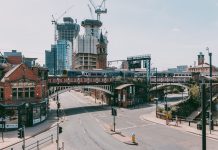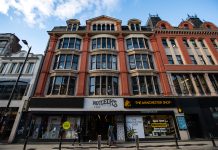‘We might be beggars’ was the comment of one women in Salford waiting on Chapel Street, outside the general post office for her war pay.
The staff inside were doing their best but there were overwhelmed as the government’s new procedures for making payments to the wives and dependents of soldiers came into place.
In Manchester the similar queue extended from Spring Gardens towards Market Street.
A further contingent of Belgian refugees arrived in the city. Between forty and fifty proceeded in horse drawn vehicles to Longford Hall in Stretford.
Their arrival, said the report, was becoming a sadly familiar sight
‘but familiarity does nothing to blunt the resentment which is universally felt against the nation of bullies who have driven them from their homes.’
Meanwhile the owner of Sale Hall had placed the building at the disposal of the Belgium refugees committee.
As the fall of Antwerp seemed inevitable, the London Times wrote of the likely hood of a flood of thoughtless criticism about the English response to the German invasion of Belgium. For Germany, he added, its fall had extinguished all of ISPs advantages for it would now have to defend a front from the North Sea to Switzerland.
Two German airplanes flew over Paris, dropping twenty bombs and killing three people.One fell on the roof of Notre Dam but the main targets appeared to be the train stations.
A man was killed in Trafford Park that day while shoveling coal at the works of Natham and Co.Lewis Henry from Albion Street in Hyde became entangled in machinery, had his leg torn off and died a few hours later in hospital.







